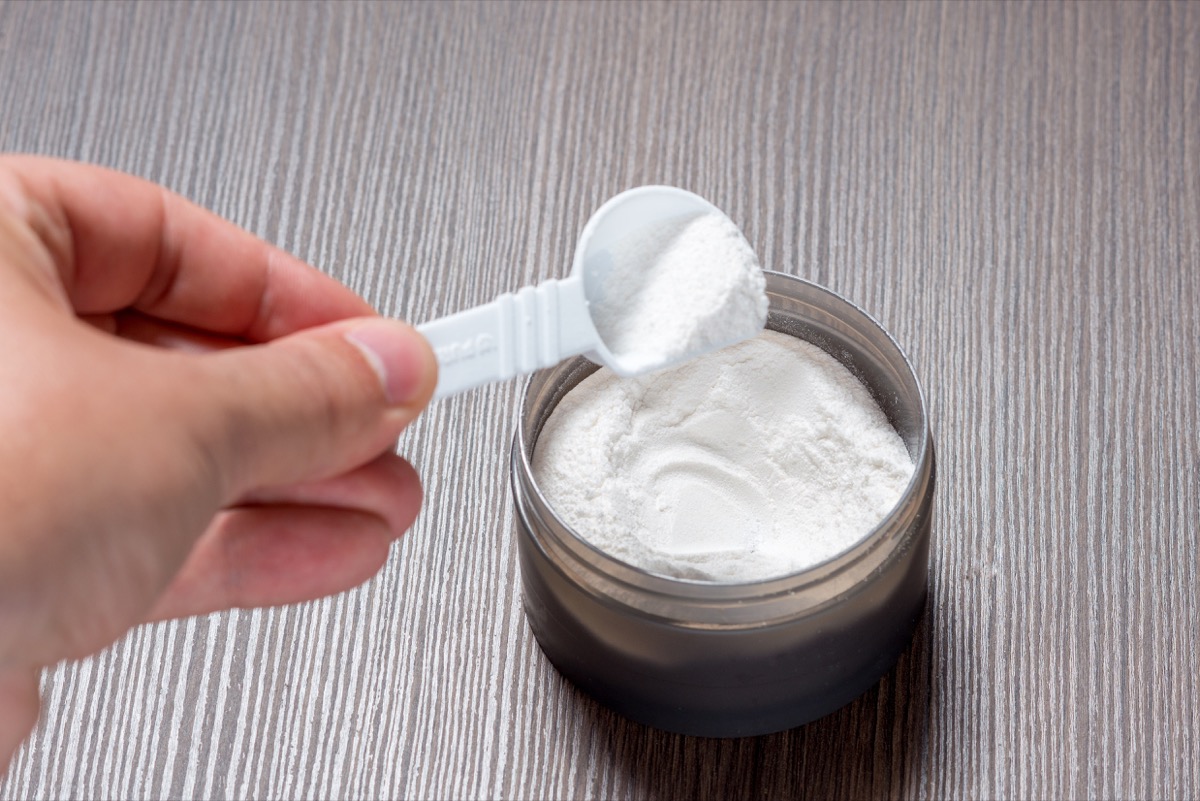Magnesium is an underrated bodily MVP: This essential electrolyte is utilized by every cell in the body to ensure proper functioning. But the typical American diet, high in processed foods, is low in magnesium, and it's possible to develop magnesium insufficiency or deficiency. That can lead to uncomfortable or debilitating symptoms. These are some of the sure signs you're lacking magnesium, and how much you should get in your daily diet, according to experts. Read on to find out more—and to ensure your health and the health of others, don't miss these Sure Signs You've Already Had COVID.
Experts say that fatigue is one of the first and most common signs of magnesium deficiency. Because magnesium's main role is to convert food into energy, and if your body doesn't contain adequate supplies, you might find yourself feeling chronically tired.

According to the National Institutes of Health, loss of appetite is a common early sign of magnesium deficiency. You might also experience nausea or vomiting.

Magnesium relaxes blood vessels and lowers blood pressure. If your blood pressure is too high, magnesium deficiency may be responsible. Chronically low levels of magnesium may increase the risk of high blood pressure and heart disease, warns the Mayo Clinic.

When a person is deficient in magnesium, the potassium levels inside muscle cells decline, a condition called hypokalemia. This can cause muscle weakness, also known as myasthenia.

One of magnesium's essential roles is to help muscles relax after contracting, so magnesium deficiency might cause muscle cramping or spasms. Magnesium also aids nerve transmission, and a deficiency can progress to numbness, tingling and seizures, the NIH says.

According to the National Institutes of Health, adult men should get 400 mg of magnesium and women 310 mg daily. Older adults should get slightly more. It's a good idea to check with your doctor if you suspect you have a magnesium deficiency. "Before you reach for a supplement, though, you should know that just a few servings of magnesium-rich foods a day can meet your need for this important nutrient," said Katherine Zeratsky, RD., LD, of the Mayo Clinic. "Nuts, seeds, whole grains, beans, leafy vegetables, milk, yogurt and fortified foods are good sources. One ounce of almonds contains 20% of the daily magnesium an adult needs. Even water (tap, mineral or bottled) can provide magnesium." And to protect your life and the lives of others, don't visit any of these 35 Places You're Most Likely to Catch COVID.
The post Sure Signs You're Lacking Magnesium, Say Experts appeared first on Eat This Not That.
----------------
By: Michael Martin
Title: Sure Signs You're Lacking Magnesium, Say Experts
Sourced From: www.eatthis.com/news-signs-youre-lacking-magnesium/
Published Date: Wed, 27 Jul 2022 11:15:58 +0000
Read More
Did you miss our previous article...
https://naturesmart.us/fitness/7-controversial-secrets-milk-brands-dont-want-you-to-know
 HealthWellnessFitnessBeautyVideosPrivacy PolicyTerms And Conditions
HealthWellnessFitnessBeautyVideosPrivacy PolicyTerms And Conditions
